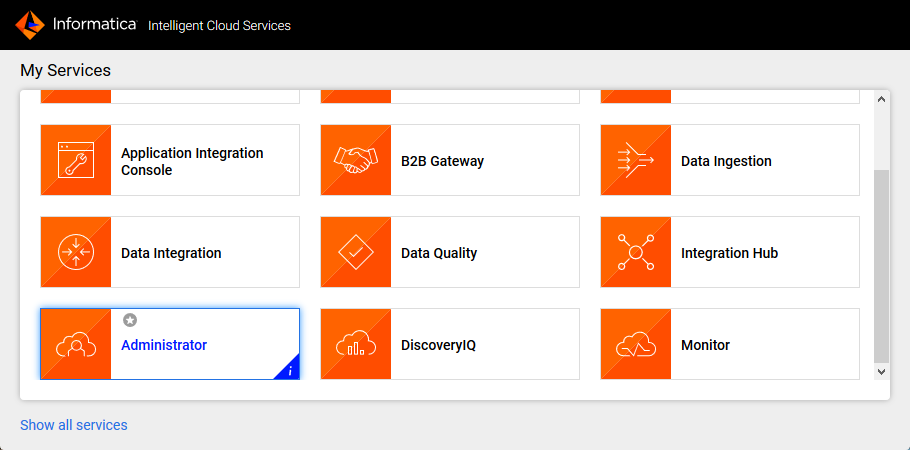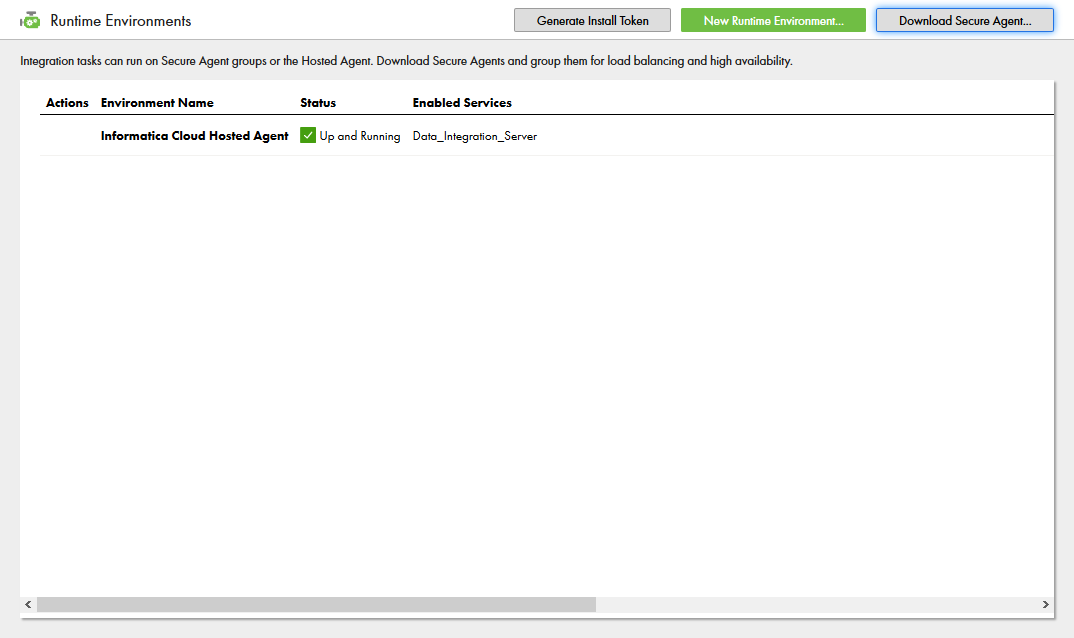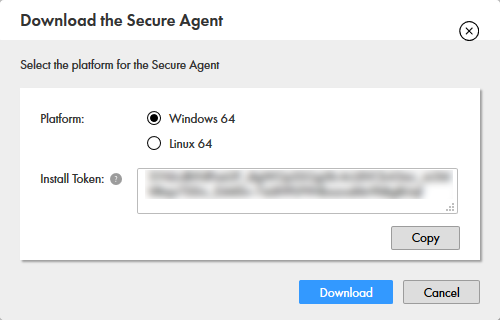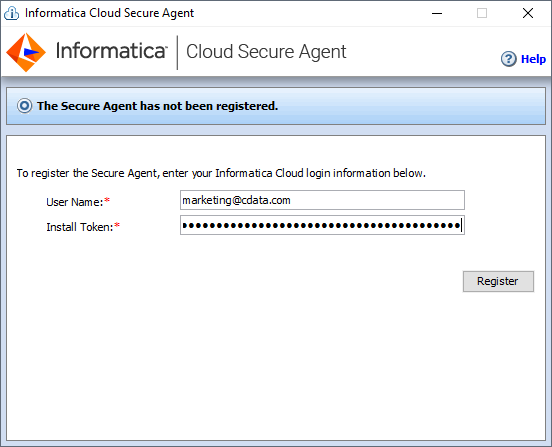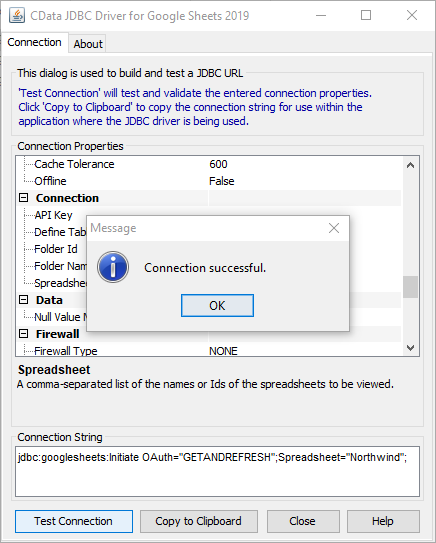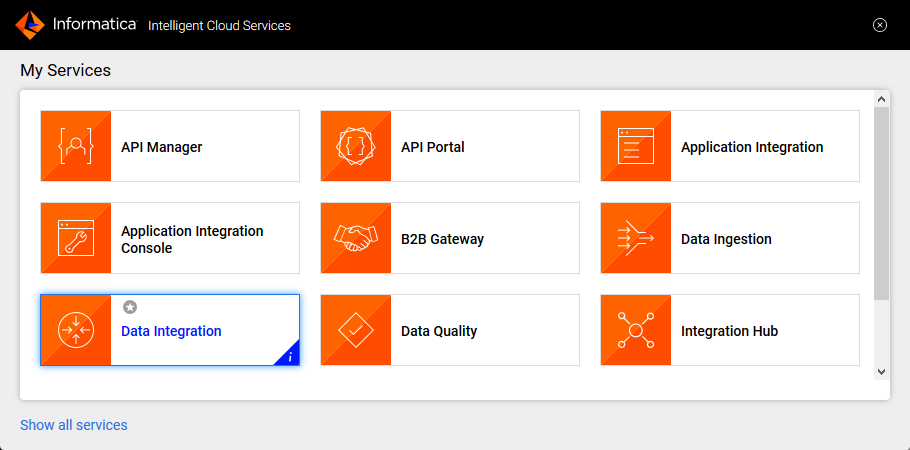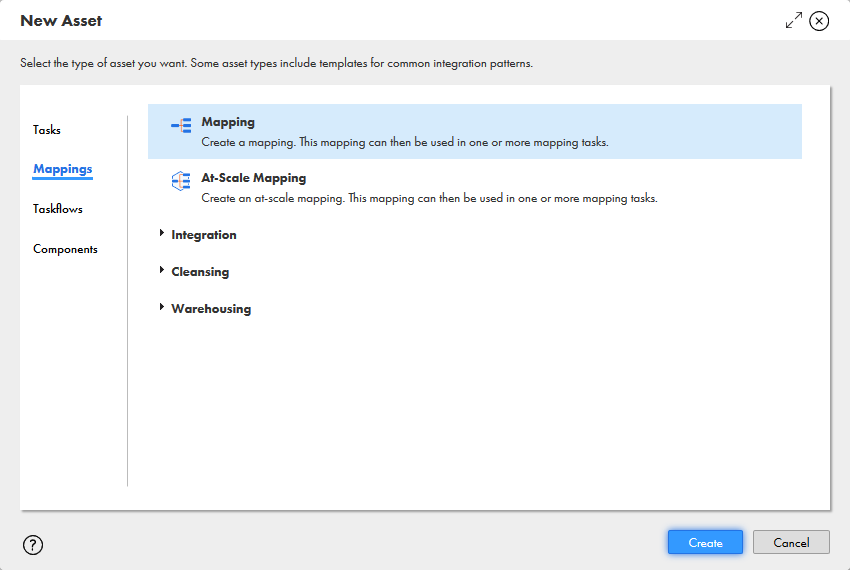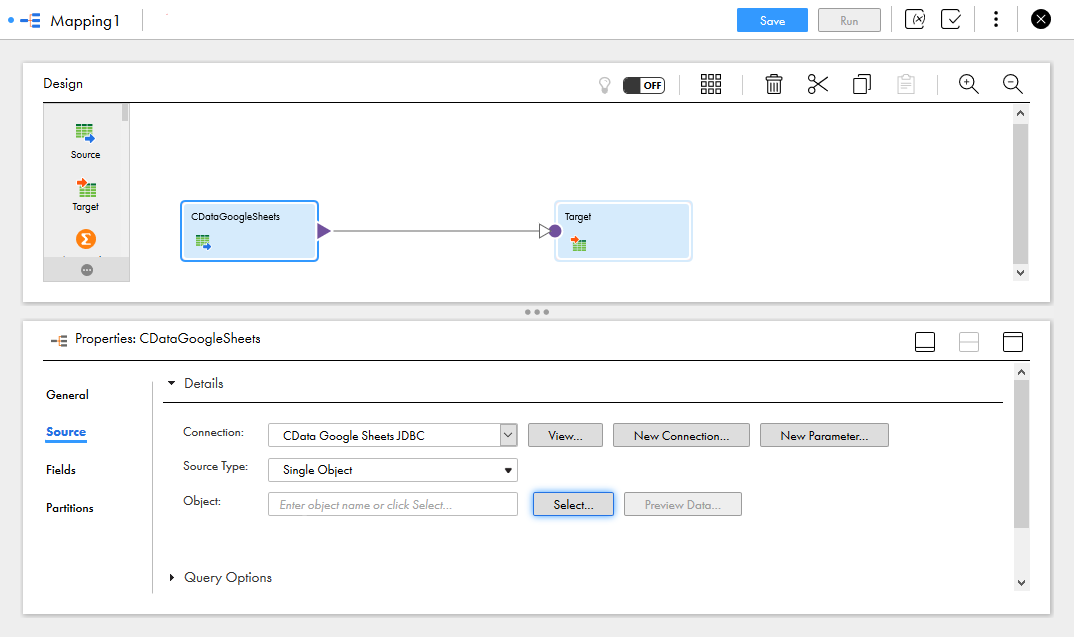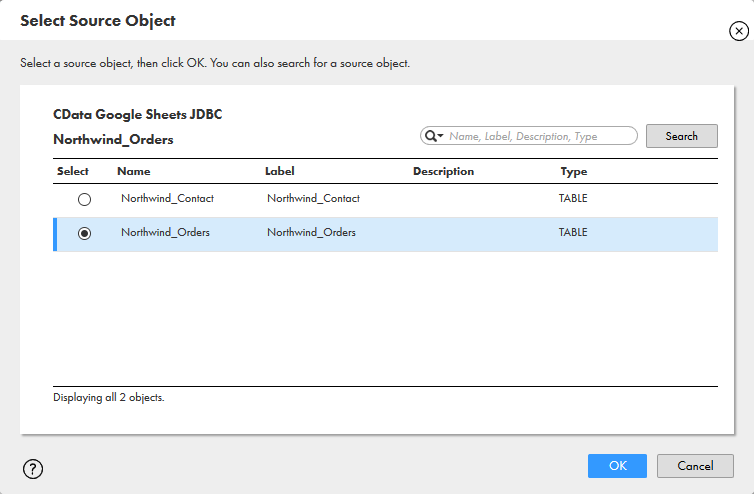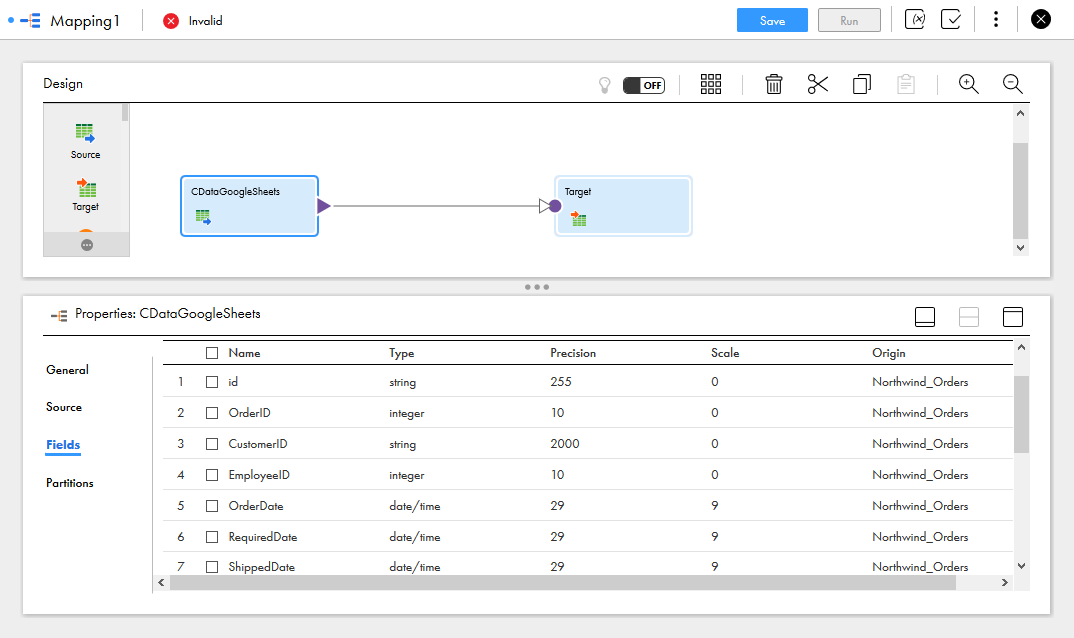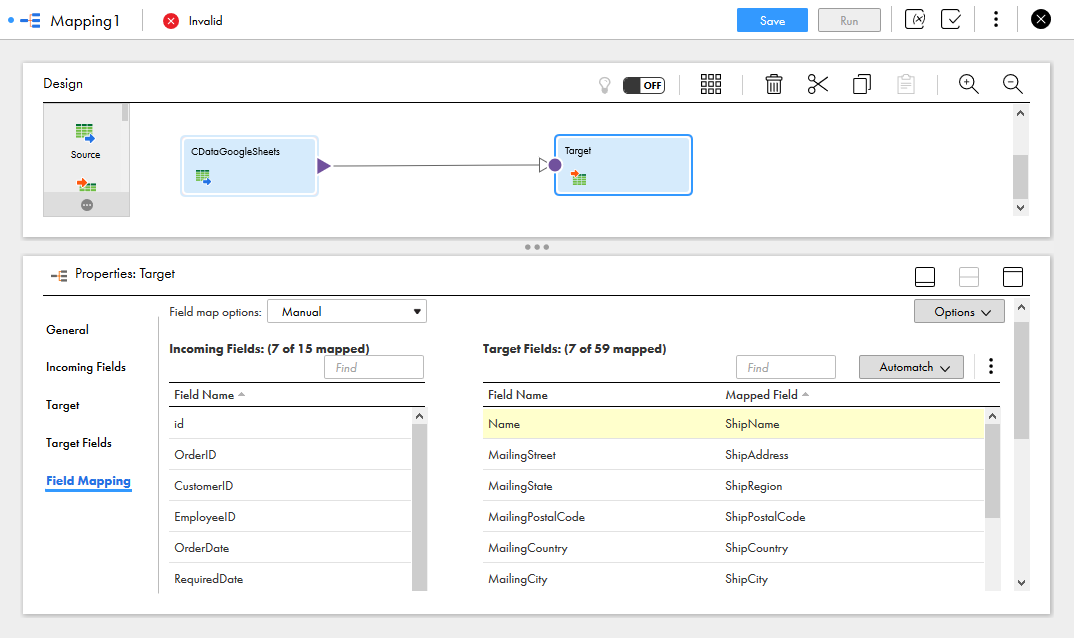Discover how a bimodal integration strategy can address the major data management challenges facing your organization today.
Get the Report →Integrate JSON Services in Your Informatica Cloud Instance
Use CData JDBC drivers with the Informatica Cloud Secure Agent to access live JSON services from Informatica Cloud.
Informatica Cloud allows you to perform extract, transform, and load (ETL) tasks in the cloud. With the Cloud Secure Agent and the CData JDBC Driver for JSON, you get live access to JSON services, directly within Informatica Cloud. In this article, we will walk through downloading and registering the Cloud Secure Agent, connecting to JSON through the JDBC Driver and generating a mapping that can be used in any Informatica Cloud process.
Informatica Cloud Secure Agent
To work with the JSON services through the JDBC Driver, install the Cloud Secure Agent.
- Navigate to the Administrator page in Informatica Cloud
![]()
- Select the Runtime Environments tab
- Click "Download Secure Agent"
![]()
- Make note of the Install Token
![]()
- Run the installer on the client machine and register the Cloud Secure Agent with your username and install token
![]()
NOTE: It may take some time for all of the Cloud Secure Agent services to get up and running.
Connecting to the JSON JDBC Driver
With the Cloud Secure Agent installed and running, you are ready to connect to JSON through the JDBC Driver. Start by clicking the Connections tab and clicking New Connection. Fill in the following properties for the connection:
- Connection Name: Name your connection (i.e.: CData JSON Connection)
- Type: Select "JDBC_IC (Informatica Cloud)"
- Runtime Environment: Select the runtime environment where you installed the Cloud Secure Agent
- JDBC Connection URL: Set this to the JDBC URL for JSON. Your URL will look similar to the following:
jdbc:json:URI=C:/people.json;DataModel=Relational;See the Getting Started chapter in the data provider documentation to authenticate to your data source: The data provider models JSON APIs as bidirectional database tables and JSON files as read-only views (local files, files stored on popular cloud services, and FTP servers). The major authentication schemes are supported, including HTTP Basic, Digest, NTLM, OAuth, and FTP. See the Getting Started chapter in the data provider documentation for authentication guides.
After setting the URI and providing any authentication values, set DataModel to more closely match the data representation to the structure of your data.
The DataModel property is the controlling property over how your data is represented into tables and toggles the following basic configurations.
- Document (default): Model a top-level, document view of your JSON data. The data provider returns nested elements as aggregates of data.
- FlattenedDocuments: Implicitly join nested documents and their parents into a single table.
- Relational: Return individual, related tables from hierarchical data. The tables contain a primary key and a foreign key that links to the parent document.
See the Modeling JSON Data chapter for more information on configuring the relational representation. You will also find the sample data used in the following examples. The data includes entries for people, the cars they own, and various maintenance services performed on those cars.
Built-In Connection String Designer
For assistance in constructing the JDBC URL, use the connection string designer built into the JSON JDBC Driver. Either double-click the .jar file or execute the .jar file from the command-line.
java -jar cdata.jdbc.json.jarFill in the connection properties and copy the connection string to the clipboard.
![Using the built-in connection string designer to generate a JDBC URL (Google Sheets is shown.)]()
- JDBC Jar Directory: Set this to the lib folder in the installation location for the JDBC Driver (on Windows, typically C:\Program Files\CData[product_name]\)
- Driver Class: Set this to cdata.jdbc.json.JSONDriver
- Username: Set this to a placeholder value (since JSON does not require a username)
- Password: Set this to a placeholder value (since JSON does not require a password)
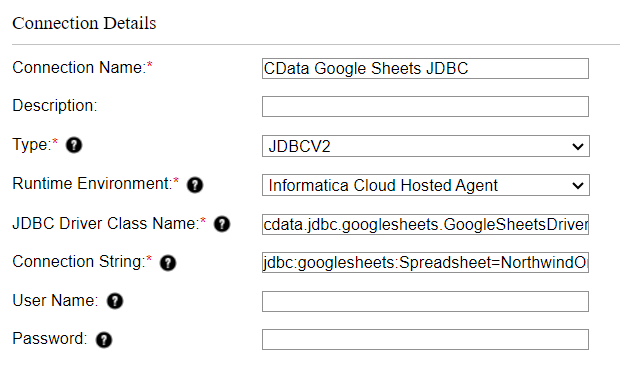
Create a Mapping for JSON Services
With the connection to JSON configured, we can now access JSON services in any Informatica process. The steps below walk through creating a mapping for JSON to another data target.
- Navigate to the Data Integration page
![]()
- Click New.. and select Mapping from the Mappings tab
![]()
- Click the Source Object and in the Source tab, select the Connection and set the Source Type
![Selecting the Source Connection and Source Type]()
- Click "Select" to choose the table to map
![Selecting the Source Object]()
- In the Fields tab, select the fields from the JSON table to map
![Selecting Source Fields to map]()
- Click the Target object and configure the Target source, table and fields. In the Field Mapping tab, map the source fields to the target fields.
![Selecting the Target Field Mappings]()
With the mapping configured, you are ready to start integrating live JSON services with any of the supported connections in Informatica Cloud. Download a free, 30-day trial of the CData JDBC Driver for JSON and start working with your live JSON services in Informatica Cloud today.






